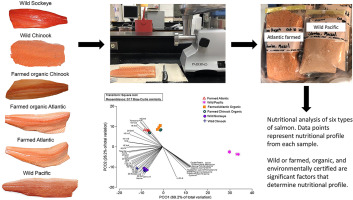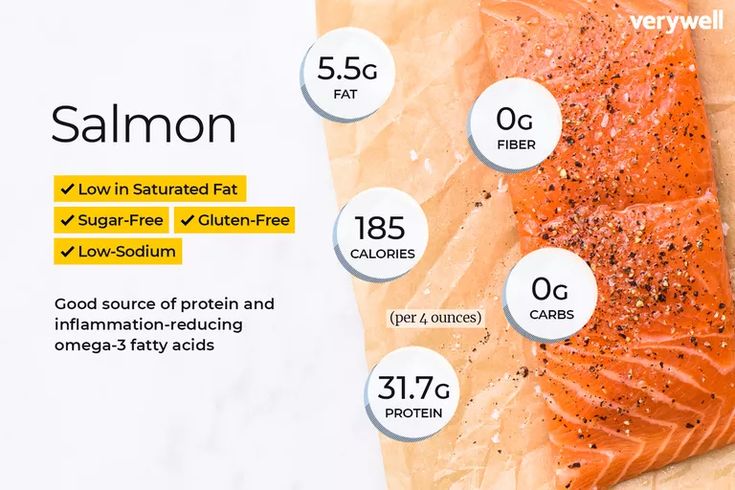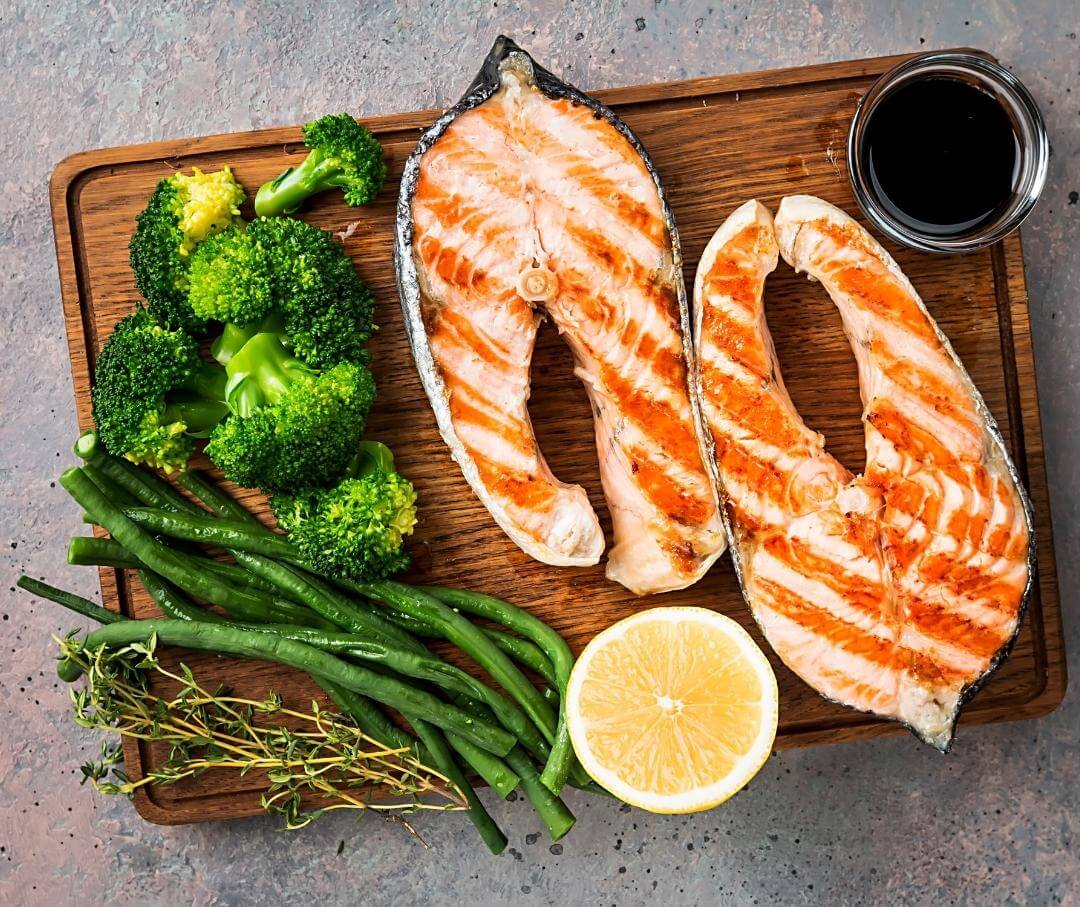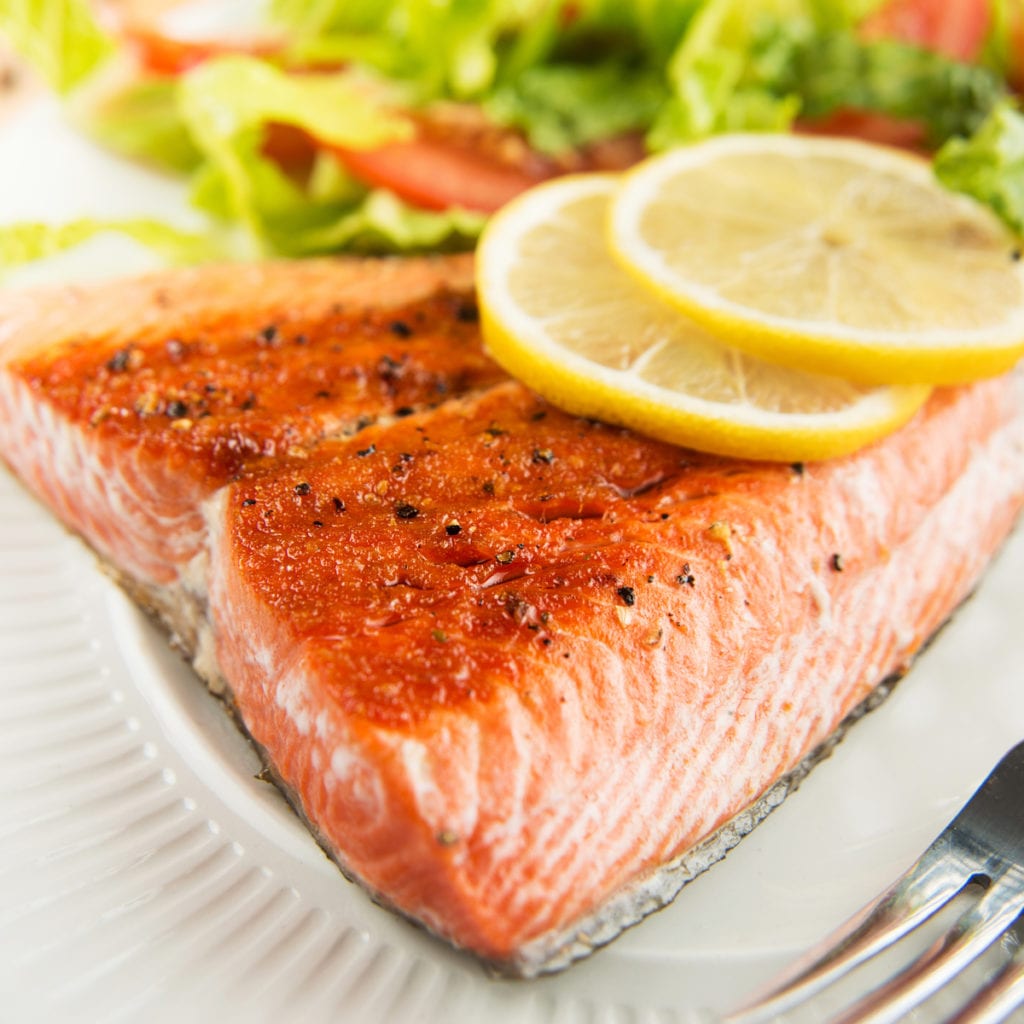Introduction

Salmon is a highly nutritious fish that offers a wide range of health benefits. Rich in essential minerals such as potassium, salmon is an excellent addition to a healthy diet. Potassium plays a crucial role in several bodily functions, including heart health and muscle function. In this article, we will explore the nutritional value of salmon, specifically its potassium content, and discuss the various health benefits associated with consuming potassium-rich salmon. Additionally, we will provide tips on incorporating salmon into your diet and share some delicious recipes to try.
Importance Of Potassium In A Healthy Diet
Potassium is an essential mineral that plays a crucial role in maintaining a healthy diet. It helps regulate fluid balance, muscle contractions, and nerve function. Consuming foods rich in potassium, such as salmon, can have numerous health benefits. Adequate potassium intake can help lower blood pressure, reduce the risk of stroke, and protect against the development of kidney stones. Additionally, potassium helps promote healthy heart function and supports proper muscle and bone health. Adding potassium-rich foods like salmon to your diet is essential for overall health and well-being.
Overview Of The Nutritional Benefits Of Salmon
Salmon is a nutritional powerhouse packed with a range of beneficial nutrients. It is rich in omega-3 fatty acids, which are essential for a healthy heart and brain. The vitamin D content in salmon helps improve bone health and supports the immune system. Salmon is also a great source of high-quality protein, which is crucial for muscle repair and growth. Moreover, it contains important minerals like potassium and selenium, which play various roles in maintaining optimal health. Including salmon in your diet can provide numerous nutritional benefits and support overall well-being.
Potassium: An Essential Mineral

Potassium is an essential mineral that plays a vital role in maintaining overall health. It is involved in various bodily functions, including nerve function, muscle contraction, and maintaining fluid balance. Potassium helps regulate blood pressure, promotes proper heart and kidney function, and supports healthy digestion. Adequate intake of potassium is crucial for maintaining optimal health and preventing conditions like hypertension and stroke. Salmon is a great source of potassium, making it an excellent choice for those looking to increase their potassium intake. Including potassium-rich salmon in your diet can help ensure you meet your daily potassium needs and support overall well-being.
Role Of Potassium In The Body
Potassium plays a vital role in maintaining overall health. It is an essential mineral that helps regulate blood pressure, promote proper heart and kidney function, and support healthy digestion. Potassium is involved in nerve function and muscle contraction, making it crucial for optimal bodily function. It also helps maintain fluid balance, electrolyte balance, and pH level in the body. Adequate intake of potassium is necessary for maintaining proper cellular function and preventing conditions like hypertension and stroke. Including potassium-rich salmon in the diet can contribute to meeting daily potassium needs and supporting overall well-being.
Recommended Daily Intake Of Potassium
The recommended daily intake of potassium varies depending on an individual’s age and specific health needs. For adults, the general guideline is to consume around 2,500-3,000 milligrams of potassium per day. However, certain conditions such as high blood pressure or kidney disease may require a higher or lower intake of potassium. It is important to consult with a healthcare professional to determine the appropriate daily potassium intake for your specific needs. Including potassium-rich foods like salmon in your diet can help you meet your daily potassium requirements. [9]
Nutritional Profile Of Salmon

Salmon is a highly nutritious food that offers a range of beneficial nutrients. A 1-cup serving of raw salmon provides approximately 608 mg of potassium, making it a great source of this essential mineral. Additionally, salmon is high in omega-3 fatty acids, protein, vitamin D, and various B vitamins. It also contains iron and calcium. Including salmon in your diet can help support overall health and provide important nutrients that contribute to the proper functioning of the body.
Potassium Content In Salmon
Salmon is a rich source of potassium, providing approximately 608 mg of potassium in a 1-cup serving. This makes it an excellent food choice for individuals looking to increase their potassium intake. Potassium is an essential mineral that plays a vital role in maintaining fluid balance, nerve function, and muscle contractions. Consuming foods high in potassium, like salmon, can help regulate blood pressure, support heart health, and promote proper kidney function. Adding potassium-rich salmon to your diet is a delicious and nutritious way to meet your daily potassium needs.
Other Key Nutrients Found In Salmon
In addition to being a rich source of potassium, salmon is packed with other key nutrients that contribute to overall health. It is an excellent source of omega-3 fatty acids, which are essential for heart health and brain function. Salmon is also high in protein, providing all the essential amino acids needed for cell growth and repair. It contains vitamins such as vitamin D, vitamin B12, and vitamin B6, which play crucial roles in supporting bone health, red blood cell production, and energy metabolism. Including salmon in your diet can help ensure you’re getting a wide range of essential nutrients.
Health Benefits Of Consuming Potassium-rich Salmon

Consuming potassium-rich salmon offers numerous health benefits. Firstly, the potassium content in salmon helps promote heart health by regulating blood pressure and reducing the risk of cardiovascular diseases. Secondly, the omega-3 fatty acids found in salmon contribute to brain health and reduce inflammation in the body. Additionally, the high protein content supports muscle function and aids in tissue repair. Salmon is also rich in selenium, which has antioxidant properties and supports immune function. Including potassium-rich salmon in your diet can provide these essential nutrients and contribute to overall well-being. [17][18]
Promotes Heart Health
Salmon is a powerhouse when it comes to promoting heart health. Its high levels of omega-3 fatty acids, combined with its potassium content, contribute to various heart-healthy benefits. The omega-3 fatty acids help reduce inflammation in the arteries, lowering the risk of cardiovascular diseases. Additionally, salmon’s potassium content helps regulate blood pressure, further reducing the risk of heart problems. Incorporating potassium-rich salmon into your diet can be an excellent choice for maintaining a healthy heart and protecting against heart-related issues.
Supports Muscle Function And Bone Health
Salmon’s high potassium content makes it a great food choice for supporting muscle function and bone health. Potassium plays a crucial role in muscle contractions, helping to maintain proper muscle function and prevent muscle cramps and spasms. Additionally, salmon is an excellent source of vitamin D and calcium, both of which are important for optimal bone health. Vitamin D helps the body absorb calcium, while calcium contributes to the strength and density of bones. Including potassium-rich salmon in your diet can help support strong muscles and maintain healthy bones.
Incorporating Potassium-rich Salmon Into Your Diet

Incorporating potassium-rich salmon into your diet is a delicious and nutritious way to boost your potassium intake. There are many ways to enjoy this flavorful fish. Grilling or baking salmon fillets with a sprinkle of herbs and spices is a simple and healthy option. You can also try making salmon patties or adding flaked salmon to salads or pasta dishes. Pairing salmon with potassium-rich vegetables like spinach, sweet potatoes, and avocados can further enhance your nutrient intake. With its versatility, salmon can easily be incorporated into a variety of dishes to support your overall health.
Cooking Methods To Preserve Potassium Content
There are specific cooking methods that can help preserve the potassium content in salmon. It is important to note that boiling or poaching the fish can cause some of the nutrients, including potassium, to leach out into the cooking liquid. To retain the potassium and other valuable nutrients, dry-heat cooking methods such as grilling, roasting, or sautéing are recommended. These methods help to lock in the potassium content, ensuring that you get the maximum nutritional benefits from your salmon. So, next time you cook salmon, consider using these cooking techniques to preserve its potassium content.
Delicious Recipes Featuring Salmon
Looking for delicious ways to incorporate salmon into your diet? Try these flavorful recipes that showcase the versatility of this potassium-rich fish:
- Grilled Salmon with Lemon and Dill: Marinate salmon fillets with fresh lemon juice, dill, and olive oil, then grill to perfection for a light and refreshing dish.
- Baked Teriyaki Salmon: Coat salmon with a homemade teriyaki glaze made from soy sauce, honey, ginger, and garlic, then bake until tender and glazed.
- Citrus Herb Crusted Salmon: Create a flavorful crust using a mixture of citrus zest, fresh herbs, and breadcrumbs. Bake the salmon until the crust is golden and crispy.
- Pan-Seared Salmon with Mango Salsa: Sear salmon fillets in a hot pan until the skin is crispy. Serve with a refreshing salsa made from diced mango, red onion, cilantro, and lime juice.
These recipes are not only delicious but also a great way to retain the potassium content in salmon. Enjoy the health benefits and the incredible taste of these potassium-rich salmon dishes.
Conclusion

In conclusion, salmon is not only a delicious and versatile fish, but also a nutritional powerhouse. With its high potassium content, salmon plays a vital role in maintaining heart health, supporting muscle function, and promoting bone health. Additionally, salmon is packed with other key nutrients like omega-3 fatty acids, protein, and vitamins. By incorporating potassium-rich salmon into your diet, you can reap the numerous health benefits it offers. So, whether you grill it, bake it, or pan-sear it, make sure to include salmon in your meal plan for a nutritious and flavorful experience.
Summary Of The Nutritional Value Of Salmon
Salmon is a nutrient-dense fish that offers numerous health benefits. It is a good source of potassium, with wild salmon containing 13% of the daily value per 3.5 ounces (100 grams). In addition to potassium, salmon is packed with other key nutrients such as omega-3 fatty acids, protein, and vitamins. These nutrients play a vital role in supporting heart health, muscle function, and bone health. By incorporating potassium-rich salmon into your diet, you can enjoy a nutritious meal that contributes to overall well-being.
Key Takeaways And Benefits Of Including Potassium-rich Salmon In Your Diet
Including potassium-rich salmon in your diet can provide several key benefits to your overall health. The high potassium content in salmon helps to manage blood pressure and prevent excess fluid retention. Additionally, salmon is packed with omega-3 fatty acids, protein, and vitamins, which support heart health, muscle function, and bone health. By incorporating this nutrient-dense fish into your meals, you can enjoy a delicious and nutritious way to improve your well-being. So, add some salmon to your plate and reap the many benefits it has to offer.
Frequently Asked Questions about Potassium in Salmon
Q: What is potassium?
A: Potassium is an essential mineral that plays a vital role in maintaining proper functioning of the body. It is an electrolyte that helps regulate the balance of fluids, supports nerve and muscle function, and also helps control blood pressure.
Q: Why is potassium important in our diets?
A: Potassium is crucial for overall health and is involved in many bodily functions, including maintaining a healthy heartbeat, balancing fluids in the body, supporting nerve function, and aiding in muscle contractions. It also helps lower blood pressure and reduces the risk of stroke.
Q: Is salmon a good source of potassium?
A: Absolutely! Salmon is an excellent source of potassium. It is a nutrient-dense fish that provides a variety of essential vitamins and minerals, including potassium. A serving of salmon can contribute significantly to meeting your daily potassium requirements.
Q: How much potassium is present in salmon?
A: The amount of potassium in salmon varies depending on the species and preparation method. On average, a 3-ounce serving of cooked salmon provides around 326-534 milligrams of potassium. This is roughly 10-15% of the recommended daily intake for adults.
Q: What are the health benefits of consuming potassium in salmon?
A: Consuming potassium-rich foods, such as salmon, can have numerous health benefits. Potassium helps regulate blood pressure, reduces the risk of stroke, supports proper nerve function, optimizes muscle contractions, improves bone health, and aids in overall cardiovascular health.
Q: Can consuming potassium in salmon be beneficial for people with hypertension?
A: Yes. Salmon, being rich in potassium and a heart-healthy food, can help regulate blood pressure levels. Potassium helps counteract the effects of sodium in the body, which can help lower blood pressure and reduce the risk of cardiovascular issues.
Q: Are there any additional nutrients in salmon that complement the potassium content?
A: Yes, along with potassium, salmon is also a great source of omega-3 fatty acids, high-quality protein, vitamin D, vitamin B12, selenium, and various other important nutrients. These nutrients work together synergistically to promote overall health and well-being.
Q: Is it better to consume fresh or canned salmon for potassium intake?
A: Both fresh and canned salmon can be good sources of potassium, but the amount may vary. Fresh salmon generally contains more potassium than canned salmon due to the preservation process. However, canned salmon, especially when consuming the bones, can also be a valuable source of calcium.
Q: Are there any precautions or considerations to keep in mind when consuming potassium?
A: While potassium is an essential nutrient, individuals with certain medical conditions, such as kidney disease or those taking specific medications, may need to monitor their potassium intake. It is advisable to consult with a healthcare professional for personalized dietary guidance.
In conclusion, incorporating potassium-rich foods like salmon into your diet can provide numerous health benefits. Whether you choose fresh or canned salmon, enjoying this nutritious fish can be an excellent way to meet your potassium needs and support your overall well-being.

A small, independently run fish and chip shop using quality ingredients cooked freshly in our kitchen to ensure great tasting food. All of our drinks are in glass bottles, and all of our takeaway packaging is recyclable or compostable to help reduce our impact on the environment.